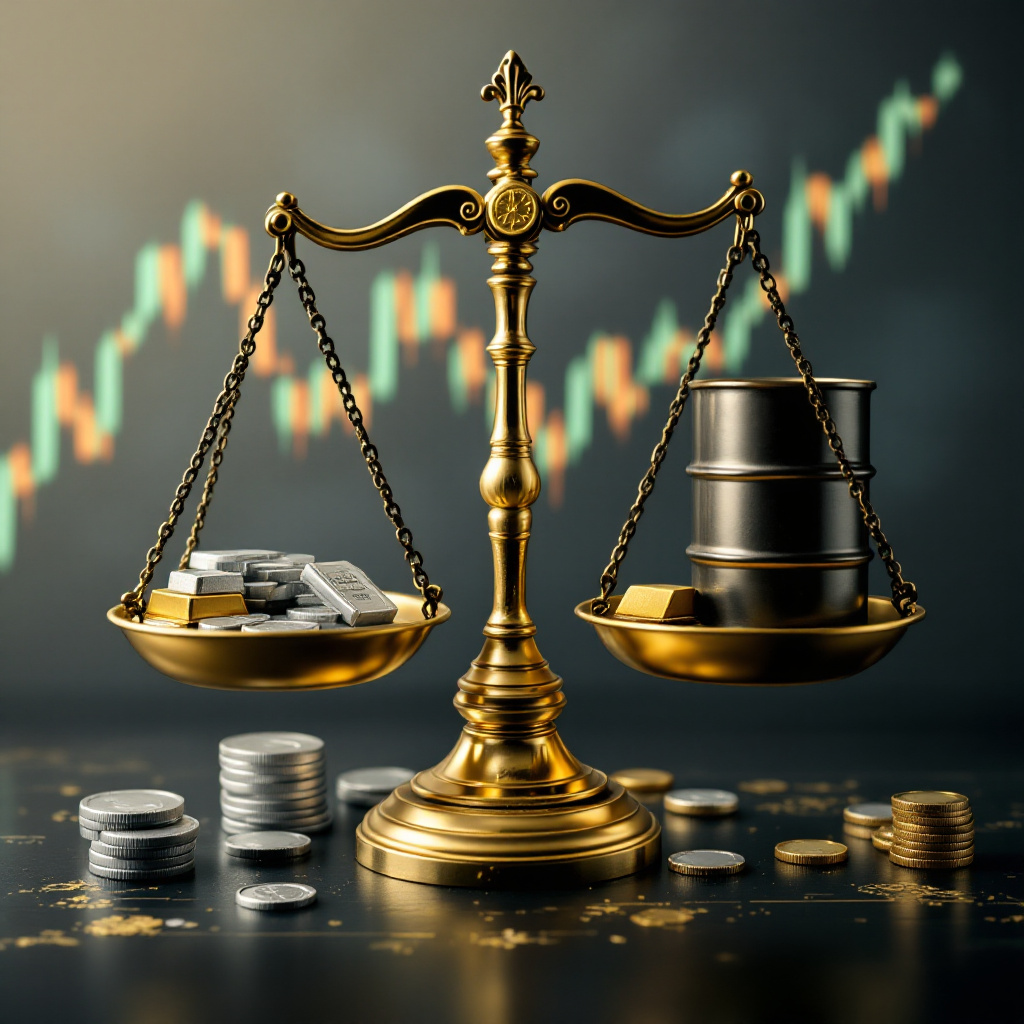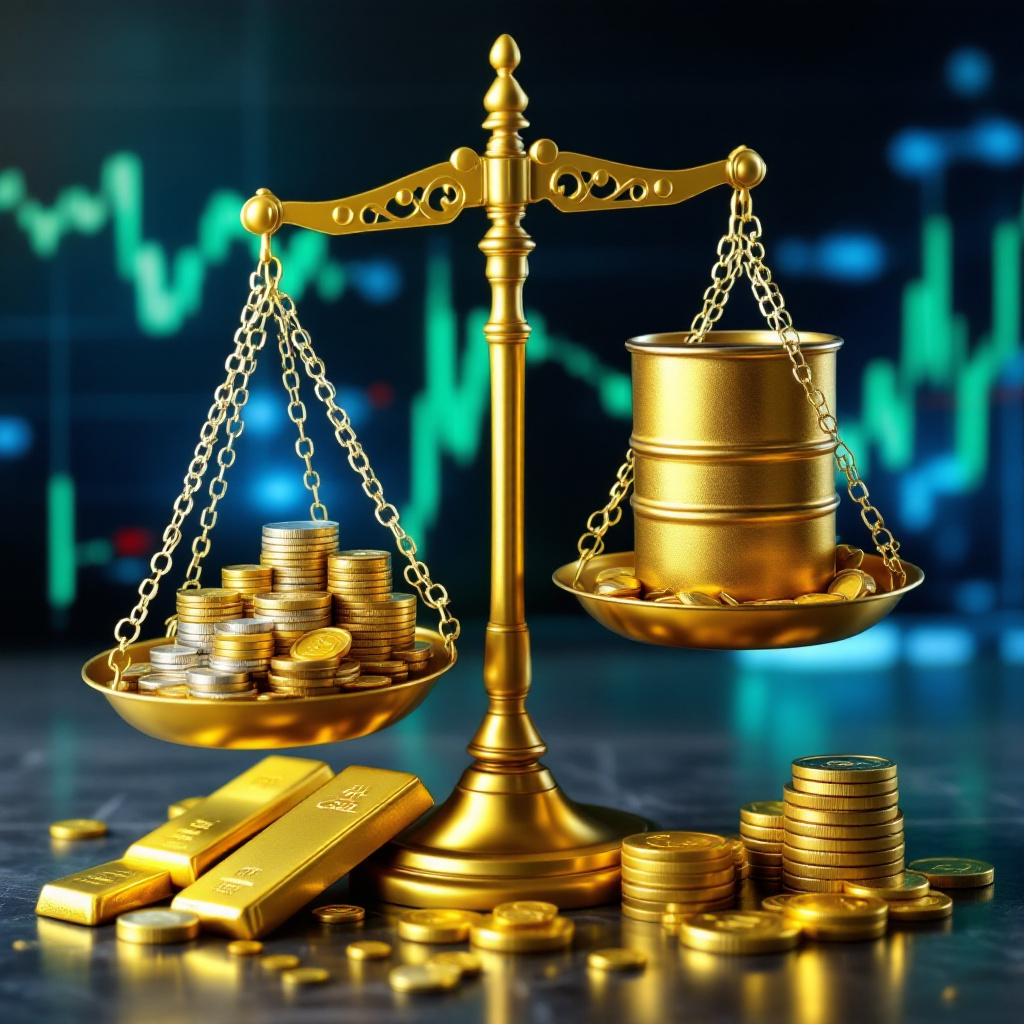Unveiling the World of Commodity ETFs: Your Gateway to Diversified Investing
In the ever-evolving landscape of investment options, commodity ETFs stand as a fascinating yet often overlooked opportunity for diversifying portfolios. But what exactly are these financial instruments? How can they serve as a buffer against the unpredictable nature of traditional stock and bond markets? Buckle up, because we’re about to embark on a journey through the intriguing realm of commodity ETFs.
What Are Commodity ETFs Anyway?
Commodity ETFs, short for exchange-traded funds, are investment funds that track the price of a specific physical commodity. Whether it’s glittering gold, shiny silver, or the ever-so-volatile crude oil, these funds allow investors to dip their toes into commodities without the hassle of physically buying and storing them.
Interestingly, while stocks and bonds often sway with the economic tides, commodities dance to their own rhythm. Their prices move independently, influenced by distinct market forces like supply disruptions and geopolitical tensions. This unique trait makes commodity ETFs a nifty tool for sprucing up a mundane portfolio.

Why Should You Consider Commodity ETFs?
If you’re wondering why one might choose commodity ETFs over traditional investments, here’s why:
- Diversification: Commodity ETFs allow you to spread your eggs across different baskets, reducing risk by diluting exposure to the ups and downs of stock and bond markets.
- Inflation Hedge: Commodities often rise with inflation, providing a financial safety net when prices of goods and services soar.
- Liquidity: Unlike physical commodities, ETFs can be easily traded on stock exchanges, offering quick entry and exit points.
- Cost-Effectiveness: They often come with lower transaction costs compared to directly investing in physical commodities.
The Cosmic Buffet: Types of Commodity ETFs
Just like dancing to different beats, commodity ETFs come in various flavors, each offering unique exposure pathways:
1. Physical Commodity ETFs
These ETFs reflect the price of a commodity by physically holding it. Gold and silver ETFs are prime examples. When you invest in a physical commodity ETF, you’re essentially buying a stake in a fund that owns a stash of the tangible commodity.
2. Futures-Based Commodity ETFs
Betting on the future? These ETFs invest in commodity futures contracts rather than the physical commodity itself. Though they don’t provide direct exposure to spot prices, they can offer significant leverage and require minimal upfront capital.
3. Commodity Index ETFs
If you’d rather not put all your chips in one pot, commodity index ETFs offer a salad bowl of different commodities. They track a commodity index, spreading your exposure across a basket of commodities like agriculture, energy, and metals.
Things to Mull Over Before Jumping In
Commodity ETFs, while alluring, aren’t without quirks. Here are a few wrinkles to smooth out before diving headfirst into the pool:
- Volatility: Commodities are notorious for their wild swings, and by extension, so are the ETFs that track them. Brace yourself for potential turbulence.
- Contango and Backwardation: Futures-based ETFs might face issues due to these market conditions, impacting returns.
- Storage and Management Fees: Some physical commodity ETFs come with the burden of storage and insurance costs.
Who Should Consider Commodity ETFs?
If you’re an investor aiming to diversify your portfolio with assets less correlated to traditional markets, commodity ETFs might just be your ticket. They’re a compelling choice for those looking to hedge against inflation and add a dash of variety to their investment mix.
That said, they’re not everyone’s cup of tea. A firm grasp of their workings and potential risks is essential before making a move. Remember, a balanced approach is key, and commodities should complement, not overshadow, your overall investment strategy.
Wrapping Up
And there you have it! Commodity ETFs are a doorway to the enticing world of consumer staples, raw materials, and precious metals. While investing in them is no stroll in the park, with a touch of knowledge and a pinch of caution, they can add that much-needed zing to your investment portfolio. So, why not explore commodity ETFs and see where they might fit in your financial game plan?
In summary, whether you’re chasing the shimmer of gold, riding the waves of oil, or soaking up the diversity of a commodity index, these ETFs offer a realm of possibilities for the savvy investor. Just like life’s twists and turns, they’re full of surprises, waiting for you to uncover.
FAQs About Commodity ETFs
What is the best commodity ETF?
Determining the best commodity ETF can be a bit like choosing the best ice cream flavor—it depends on your taste and objectives! These ETFs vary widely based on factors like the commodities they track, the fees involved, and their performance history. Investors should consider their own financial goals and risk tolerance when selecting the right commodity ETF for their portfolio.
Does Vanguard offer a commodity ETF?
Yes, Vanguard offers the Commodity Strategy Fund Admiral Shares (VCMDX). This mutual fund is intended to provide broad exposure to the commodity markets and is designed for investors looking to diversify their portfolios with commodity-linked investments.
What are commodity ETFs?
Commodity ETFs are exchange-traded funds that track the price movements of raw materials, such as metals, agricultural goods, and energy resources. They provide a convenient way for investors to gain exposure to the commodity markets without directly purchasing physical commodities. Through these ETFs, investors can potentially benefit from price changes in various commodity sectors while enjoying the liquidity and ease of trading that comes with ETFs.
How do commodity ETFs differ from other types of ETFs?
Commodity ETFs specifically focus on the price movements of individual or baskets of commodities, unlike other ETFs which may track stock indices or sectors of the economy. The unique aspect of commodity ETFs is their uncorrelation to traditional stock market movements, often behaving differently due to factors such as geopolitical events, weather patterns, and supply chain disruptions.
Are commodity ETFs risky investments?
Like all investments, commodity ETFs come with their share of risks. The commodity markets are known for volatility due to factors like sudden geopolitical shifts and natural calamities that can significantly affect supply and demand. Additionally, factors like contango in futures-based ETFs can impact their performance. Assessing your risk tolerance and understanding these factors are crucial before investing in commodity ETFs.

